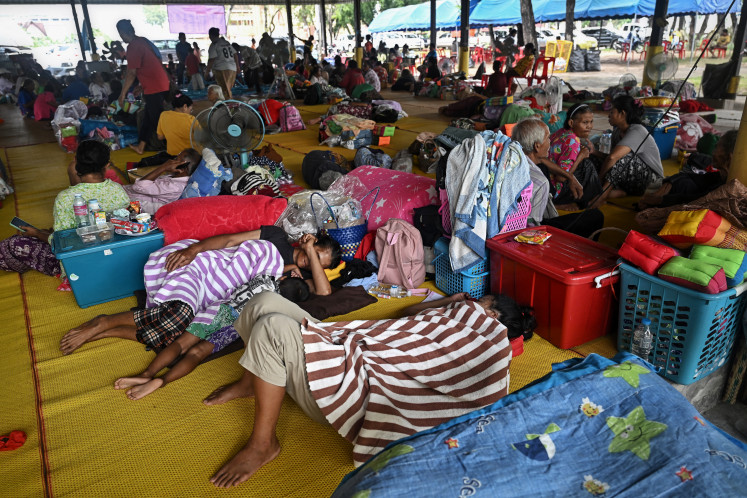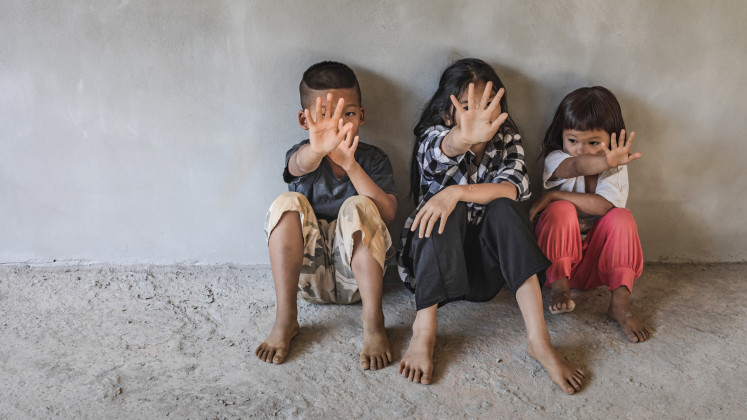Popular Reads
Top Results
Can't find what you're looking for?
View all search resultsPopular Reads
Top Results
Can't find what you're looking for?
View all search resultsRegulation prepared for shale gas development
The Energy and Mineral Resources Ministry revealed that preparations are underway for a legal framework for the development of shale gas, an unconventional gas, in a move aimed at increasing the gas supply for domestic users
Change text size
Gift Premium Articles
to Anyone
T
he Energy and Mineral Resources Ministry revealed that preparations are underway for a legal framework for the development of shale gas, an unconventional gas, in a move aimed at increasing the gas supply for domestic users.
The ministry’s director general for oil and gas, Evita Herawati Legowo, said she received around 15 joint study proposals to examine the possibility of developing shale gas in Indonesia. One of the companies applying for the joint study was US-based ExxonMobil which cooperated with a local company, she said.
“With the development of unconventional gases, we can provide gas to regions which don’t have conventional gas reserves, because the locations of the unconventional and conventional [gas] are mostly different,” she told reporters on the sidelines of the US-Indonesia Energy Investment Roundtable in Jakarta on Monday.
“In terms of price, like coal bed methane [CBM], the price of shale gas will be a bit higher than the conventional gas. A better price will also stimulate more investments in the upstream sector,” she added.
Evita continued that the government had not determined whether, after the planned joint study, the shale gas working area would be directly offered to investors or if the government would create a pilot project first to ensure that the development would be possible and profitable.
For the technology, she went on, Indonesia would learn from the US, which had been very successful in developing shale gas.
David Sandalow, the assistant secretary for policy and international affairs at the US Department of Energy, explained that 30 years of research lead to the country’s current boom in unconventional gas exploration.
“Five years ago, there was a negligible quantity of shale gas being produced in the US. Today, it is almost 30 percent of the natural gas produced. The Energy Information Administration is projecting the amount will grow to 49 percent by 2035,” he told the participants of the roundtable, which comprised government and business representatives.
There were two essential preconditions that made the shale gas boom in the US possible — productive shale gas reserves and an attractive investment climate.
“That [attractive investment climate] is a precondition for developing any energy source. Companies know that the regulatory regime in our states is stable and predictable. They know that they can make profit in our markets and their contracts will be honored,” Sandalow argued.
Energy and Mineral Resources Deputy Minister Widjajono Partowidagdo promised that the government of Indonesia would try its best to make the investment climate conducive for shale gas investors, including by discussing the possibility of providing fiscal incentives.
According to the state geology agency, Indonesia has a total potential of 570 trillion cubic feet (tcf) of gas.
Shale gas is a type of natural gas produced from shale. The gas can be extracted by using a process called hydraulic fracturing, which allows gas producers to safely recover natural gas from deep shale formations.
The government has identified potential shale gas reserves in three basins in Sumatra (Balong shale, Telisa shale and Gumai shale), two basins in Java, two basins in Kalimantan and one basin in Papua (Klasafet formation).










